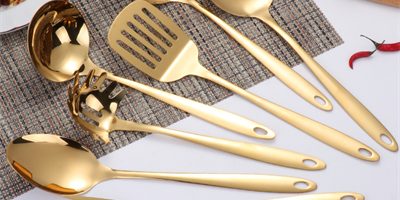Food safety is a paramount concern in the kitchen, and the choice of utensils can play a significant role in ensuring safe food preparation. In this blog, we’ll explore the critical role that stainless steel utensils play in food safety and why they are a preferred choice in professional kitchens and households.
Hygienic Properties
Stainless steel is naturally non-porous and easy to clean, making it an inherently hygienic material for utensils. It does not trap bacteria, odors, or flavors, reducing the risk of cross-contamination between different foods.
Resistance to Corrosion and Staining
Stainless steel utensils are highly resistant to corrosion and staining, even when they come into contact with acidic or heavily spiced foods. This resistance ensures that the utensils remain safe for food contact and do not leach harmful substances.
Heat Tolerance
Stainless steel utensils can withstand high temperatures without warping or releasing toxic fumes. This heat tolerance is crucial for tasks like sautéing, frying, and grilling, where utensils come into direct contact with hot surfaces.
Durability
The durability of stainless steel utensils means that they are less likely to break, chip, or develop cracks. Damaged utensils can create potential hazards in the kitchen, making stainless steel a safer long-term choice.
Compatibility with Dishwashers
Many stainless steel utensils are dishwasher safe, ensuring thorough cleaning and sanitization. This convenience adds an extra layer of food safety assurance.
In professional kitchens and households alike, the emphasis on food safety has elevated the status of stainless steel utensils. Their hygienic properties, resistance to corrosion, heat tolerance, and durability make them a reliable choice for food preparation, reducing the risk of foodborne illnesses.















